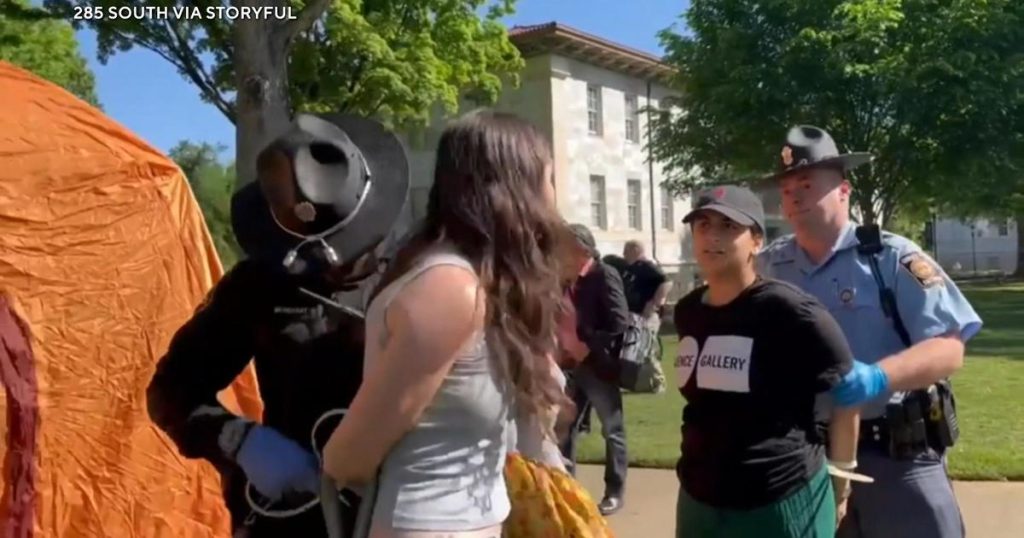Pro-Palestinian protests have erupted at universities across the United States, leading to hundreds of arrests. The protests have been marked by confrontations with police, with officers tearing down tents at Emory University in Atlanta and using batons to disperse protesters at USC in Los Angeles. The chaos has raised tensions on college campuses, with students and faculty divided on the issue of the Israeli-Palestinian conflict.
The protests come in the wake of the recent conflict between Israel and Hamas in Gaza, which resulted in the deaths of hundreds of Palestinians. Many protesters are calling for an end to U.S. support for Israel and advocating for Palestinian rights. The demonstrations have drawn attention to the ongoing humanitarian crisis in Gaza and the Palestinian territories, as well as the larger issue of the Israeli occupation of Palestinian land.
At Emory University, protesters have been camped out in tents on campus, demanding that the university sever ties with Israeli institutions and companies. Police moved in to dismantle the tents, leading to a tense standoff with protesters. At USC, officers used force to disperse a large crowd of protesters who were marching on campus. The violence has sparked debate about the use of police force in response to protests and the limits of free speech on college campuses.
The protests have also revealed divisions within the Jewish community, with some Jewish students and faculty expressing support for the Palestinian cause. Many Jewish organizations have issued statements condemning the Israeli government’s actions and calling for a peaceful resolution to the conflict. However, other Jewish groups have criticized the protests as being anti-Semitic and have called for a crackdown on demonstrators.
University administrators have been caught in the middle of the protests, trying to balance the right to free speech with concerns about safety and security on campus. Some universities have issued statements reaffirming their commitment to diversity and inclusion, while others have taken a more hardline approach to the protests. The demonstrations have reignited the debate about academic freedom and the role of universities in addressing controversial political issues.
As the protests continue to escalate, there are concerns about how the situation will be resolved and whether the demonstrations will lead to lasting change. The protests have raised awareness about the plight of the Palestinian people and the need for a peaceful resolution to the Israeli-Palestinian conflict. However, they have also highlighted the deep divisions within the U.S. and on college campuses, where students and faculty are grappling with difficult questions about justice, human rights, and freedom of expression.


